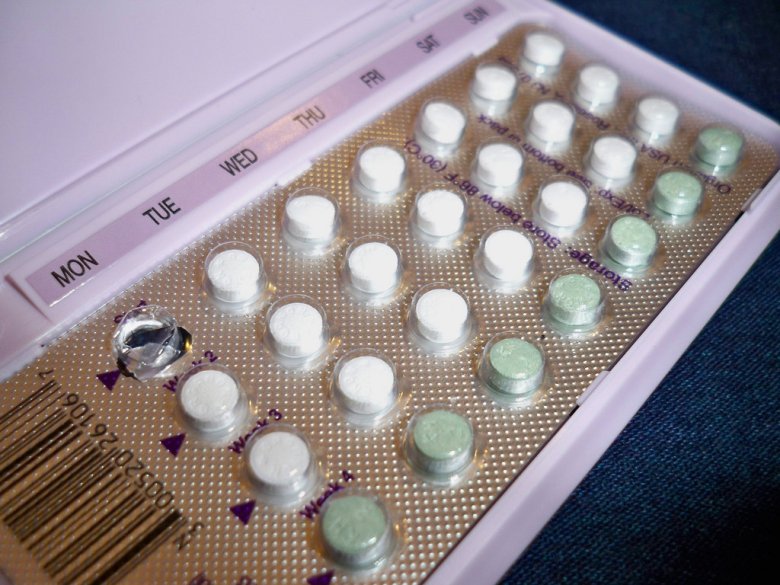- May 18, 2025

It helps to prevent pregnancy, although for many women it means much more. Hormonal contraception also means conscious family planning, meeting one's own needs and, above all, pro-health measures. A good choice may turn out to be the best cure for women's ailments. Is it possible for it to be tailored to the individual needs of each woman?
When the first contraceptive pill appeared on the market in the 1960s, nobody thought that it would bring about a real revolution. Initially, however, it was a remedy for menstrual ailments, but hundreds of thousands of women found their chance in them - for better comfort, conscious family planning and, above all, the freedom that they could only dream of before. For many women today, contraception is the basis of an adult, conscious life. And despite the myths that harm contraception, more and more women are choosing it.
However, hormonal contraception still arouses a lot of emotions, not always positive. Unfortunately, very often the reason is simply ignorance. Women are ashamed to talk about their sexuality, sometimes because of the culture in which they grew up, and sometimes because of the lack of a suitable conversation partner. Fortunately, the awareness of women in matters of protection against pregnancy, maternity or simply their own comfort is growing. The best proof of this is the possibilities offered by contraception.
What is contraception? The general conviction of society is limited to how to prevent pregnancy. Going a little deeper, it is a kind of "limitation" of a woman's fertility, her control. This is a temporary, fully reversible effect that passes immediately after stopping hormonal contraception. What is important is that it is completely safe and has no negative impact on women's health, on the contrary. However, it must not be forgotten that contraceptives have a significant impact on the functioning of the woman's body, so this process should be under the constant supervision of a doctor. Hence the restriction that contraceptives are only available on prescription.
The effect of contraception is based on the supply of hormones to the woman's body, which will slightly change the course of the processes leading to fertilisation in such a way as to prevent it. Most contraceptives contain two hormones: oestrogen and progestogen, whose function is to inhibit or intensify some of the processes taking place in a woman's body. First of all, they inhibit ovulation, i.e. the production of egg cells by the ovaries. The amount of mucus in a woman's reproductive tract also increases, which prevents the movement of sperm. Some agents can slow down the transport of the fallopian tube, i.e. moving the egg cell towards the sperm or implantation of the embryo in the uterus.
Today's medicine offers women a whole range of methods of contraception. Until recently, they were sentenced only to contraceptive pills, which are still very popular. More and more often, however, women choose "unconventional" methods, such as vaginal disc, intrauterine insert, patch or contraceptive injection. The choice of method is an individual matter for each woman and is primarily related to her comfort. Your doctor should advise you on which one is best suited to your lifestyle, as regularity is at the heart of contraception. Two-component tablets are taken daily for three weeks, followed by a week's break. Not every woman can adapt to such regularity, so other methods are gaining more and more supporters.
The age of the patient, her general health, physical condition and even diet also play an important role in choosing a method and then a contraceptive, as the same means may have a different effect on patients with similar parameters. The choice of contraception is an individual matter. Your doctor should take all these aspects into account, but he will not always be able to find the right medication for the first time. The adaptation period shall be 3 months. This is the time when a woman should take a closer look at herself. Changes are taking place in her body and she should observe them carefully. In the first weeks there may be intra-cyclical spotting or excessive water retention in the body, but after some time they should pass. If not, report it to the doctor who will prescribe another medicine.
Well-chosen contraception, contrary to what its opponents believe, will not cause weight gain and will even help to control weight. Of course, there is a risk of retaining water in the body, but a small change in lifestyle and diet will have a positive effect on our whole life. It is also worth knowing that contraception improves the appearance of the skin and prevents many diseases. Studies show that women who use this type of protection suffer much less from colorectal, uterine and ovarian cancer. Regular menstruations and hormones under control are further advantages of its use, which will certainly improve the well-being of a woman. This is what tailor-made contraception looks like.